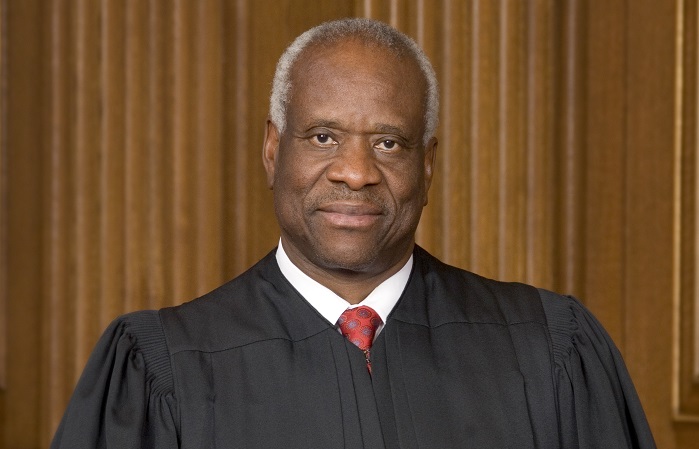Supreme Court Justice Clarence Thomas confirmed today that some COVID vaccines were developed with cells from “aborted children.”
Thomas is correct, and Politico, despite casting doubt on his comment with words like “claimed” and “suggested,” confirmed as much – though possibly inadvertently.
According to Politico, Thomas mentioned the link between abortion and the vaccines in a dissenting opinion Thursday about a New York religious freedom case.
The lawsuit involves 16 health care workers who object to the state COVID-19 vaccination mandate. A majority of the justices refused to hear the case, but Thomas dissented in an opinion joined by Justices Samuel Alito and Neil Gorsuch, according to the report.
In his opinion, Thomas “suggested” that all COVID-19 vaccines were developed using cells from aborted babies, Politico reports.
“They object on religious grounds to all available COVID–19 vaccines because they were developed using cell lines derived from aborted children,” Thomas wrote.
Click here to sign up for pro-life news alerts from LifeNews.com
Politico cast doubt on the justice’s statement, writing: “None of the Covid-19 vaccines in the United States contain the cells of aborted fetuses. Cells obtained from elective abortions decades ago were used in testing during the Covid vaccine development process, a practice that is common in vaccine testing — including for the rubella and chickenpox vaccinations.”
But this does not refute what Thomas wrote. Quite the opposite, it confirms it.
No cells from aborted babies are in the actual vaccine, but most COVID-19 vaccines in the United States, including those from Johnson & Johnson, AstraZeneca, Moderna and Pfizer – were tested, developed and/or produced using cell lines created from aborted babies, according to the Charlotte Lozier Institute.
These cell lines were created with cells from aborted babies and multiplied in a lab “into many cells of the same kind,” the research group explained. “These can be grown indefinitely and further multiplied, creating lines of cells that are sometimes used for science experiments.”
At the time of the lawsuit, all of the available COVID-19 vaccines in the U.S. had some connection to abortion – some more so than others.
Pro-lifers and religious leaders have conflicting opinions about the COVID-19 vaccines. Many have recommended that people avoid the AstraZeneca and Johnson & Johnson vaccines, but disagree about the Pfizer and Moderna vaccines.
In the case of the Pfizer and Moderna vaccines, cell lines created from an aborted baby were used in “animal-phase testing,” but they were not used in the development or production of the vaccines. Because the connection to abortion is small, many say the vaccines are acceptable, especially when no alternative is available. However, others argue that any connection to abortion, even a remote one, makes a vaccine unethical.
Vaccines can be produced ethically with pluripotent stem cells and tissue from placentas, umbilical cords and amniotic fluid — materials that do not require the destruction of human life. In 2018, the Trump administration created a $20 million grant to invest in these ethical research alternatives.
In 2020, in the midst of the COVID pandemic, the Charlotte Lozier Institute identified 17 research groups that were conducting ethical coronavirus vaccine experiments while five that were not. The five using cell lines created from aborted babies in their research include the University of Oxford (AstraZeneca), Johnson & Johnson and the University of Pittsburgh.








